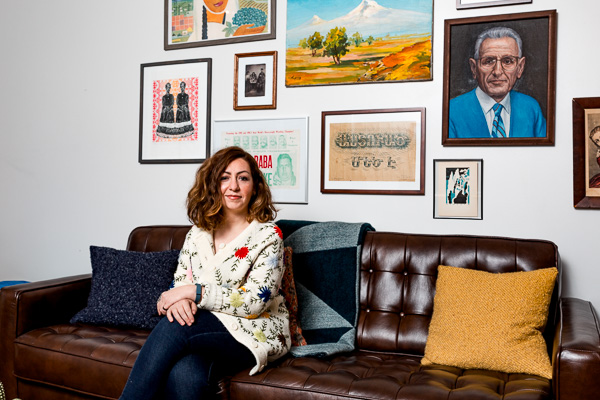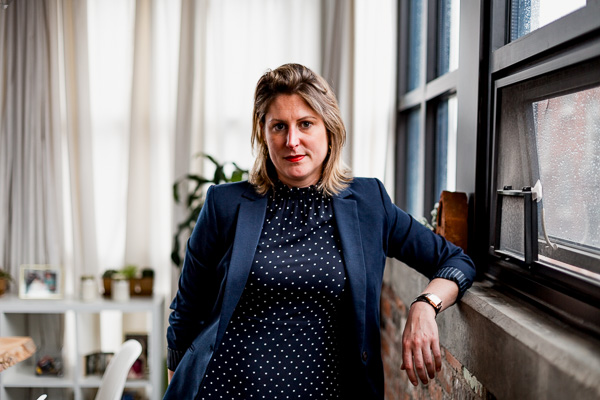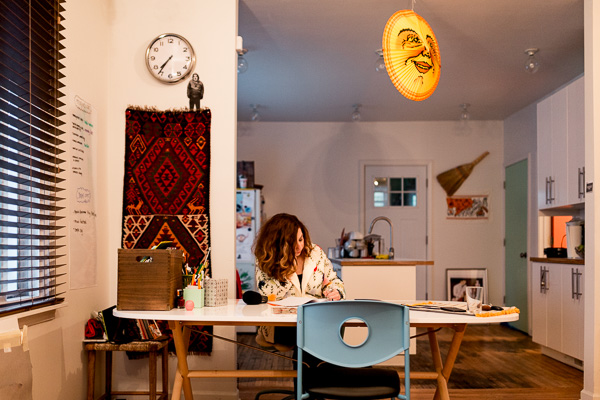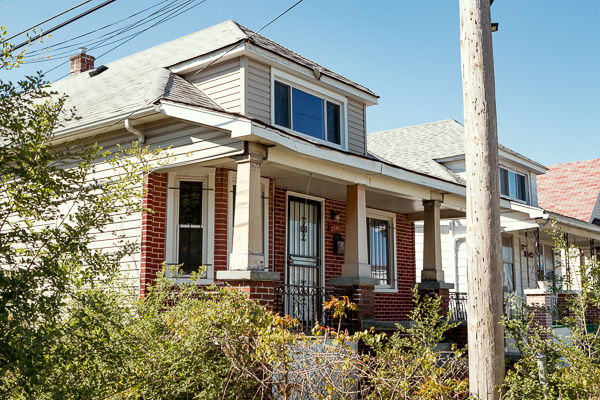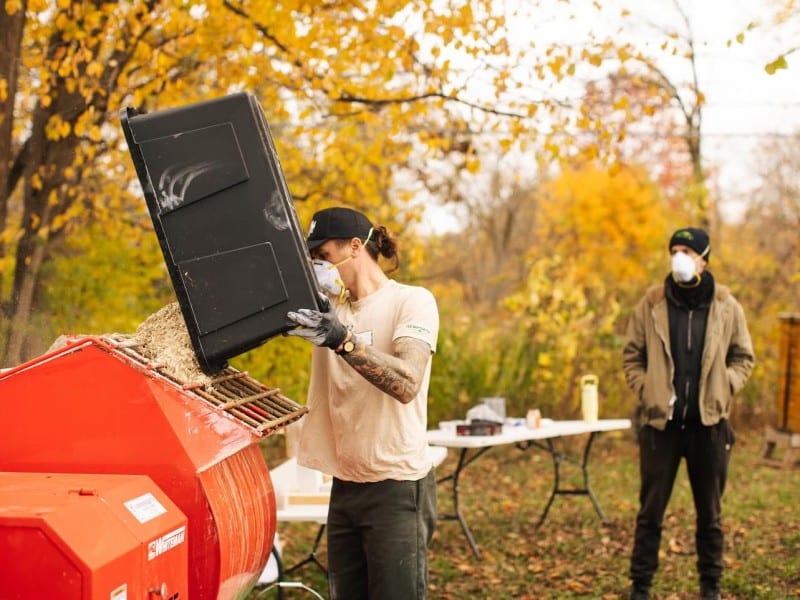A new model for Write a House means more writers in Detroit
Since 2014, Write a House has given away four rehabbed Detroit homes to writers. But because of the city's changing real estate market, they're transitioning to a rental model—which will hopefully mean even more writers in Detroit.
Having reported on areas ranging from the U.S. west coast to Kenya and Germany while based in Los Angeles, journalist Liana Aghajanian had long considered resettling to work in Detroit.
“A lot of the work I do deals with people who don’t really get the kind of attention they deserve, or their lives are complex enough that they’re not covered in a complex way,” Aghajanian says. “I just thought that [Detroit] fit into my interest with that type of narrative, where you have something that’s really complex and people just want to oversimplify it.”
Actually relocating to Detroit was a big step for Aghajanian, both professionally and geographically, but in 2015 she applied for and received a dream offer: a free house in the city. Aghajanian is just one of four writers who’ve received a free, renovated Detroit home through the one-of-a-kind Write A House (WAH) program.
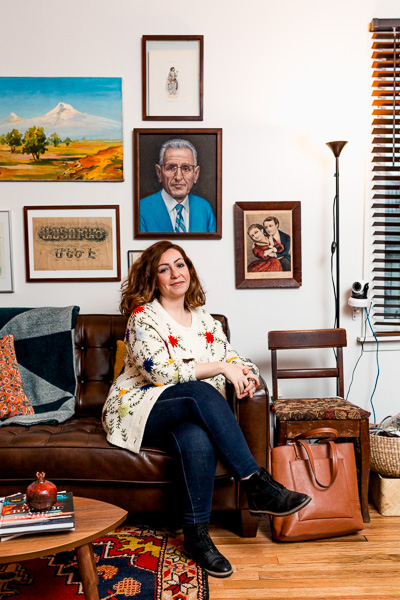
WAH founding board member and director of applications Anna Clark describes the program as a way to offer “radical support” for writers. Clark contrasts WAH with more traditional offerings like grants or residencies, which she says are helpful to writers but also force them into a “piecemeal existence,” floating from one temporary incentive to the next.
“Virginia Woolf wrote about ‘A Room of One’s Own’ years ago and we’re sort of expanding on that idea,” Clark says. “We’re like, ‘Here’s a house of your own. You should make a home here.'”
Community mindset
WAH director Sarah F. Cox brainstormed the idea for the program in 2012 with co-founder Toby Barlow, who has since left the program. The project received major early support from the Knight Foundation, which awarded WAH a $100,000 grant in 2014. Competition has been fierce for the four homes WAH has given out so far. The program’s first open application period in 2014 drew 350 applications. With the addition of an application fee, a second round in 2015 drew a smaller but still substantial pool of 220 hopefuls.
Rehabs for the houses address the needs of eventual writers, but also the communities surrounding them. WAH has partnered with Future Build, a construction company run by the nonprofit Detroiters Working for Environmental Justice, to provide construction apprenticeships for those doing renovation work for WAH.
“We want to make sure that people are going to be able to get on a more financially stable path on the worker side of this as well,” Cox says.
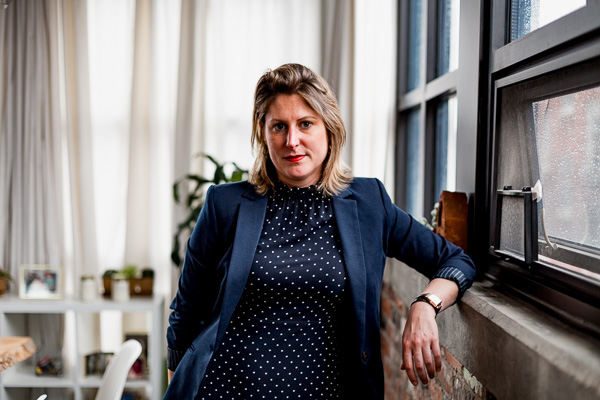
While WAH hands writers the deeds to their homes at no cost after two years, Cox notes that writers are still required to pay their own taxes and home insurance.
“No free house is actually free,” she says. “Even if you just own a home free and clear, there’s always associated costs and responsibilities. We want to make responsible homeowners.”
The program is also very concerned with identifying writers who are prepared to make strong, direct contributions to the city. Clark says the most important characteristic for a WAH applicant is “being a great writer in any kind of genre,” but applicants’ intentions and attitudes towards their prospective new home city matter too.
“We do think about why this person wants to come to or stay in Detroit, what they want to offer the community at this particular time in their life,” she says. “We want to support writers, but we also do appreciate it when there are opportunities for other people in the city to be able to connect with them and their talents.”
Life of a WAH writer
Writer Anne Elizabeth Moore, who moved from Chicago to her WAH house in Banglatown last summer, says she’s enjoyed the way Detroit has pushed her to expand her own creative endeavors. She recently participated in her first rap battle at the Motor Signal Reading Series, and released a collection of essays earlier this year titled, “Body Horror: Capitalism, Fear, Misogyny, Jokes.”
But she’s also enjoyed soaking up non-writing-related wisdom from her mostly Bengali neighbors, who she says seem to think writing is “not much of any kind of work at all … and I do usually think they make a good point.”
“I think I make up for it in their eyes by gardening,” Moore says via email. “The majority of their influence on me so far has been in that area, in truth—they’re quite patient with me in explaining their Bengali agricultural practices, which I am desperate to emulate. Bengali pumpkins are amazing.”
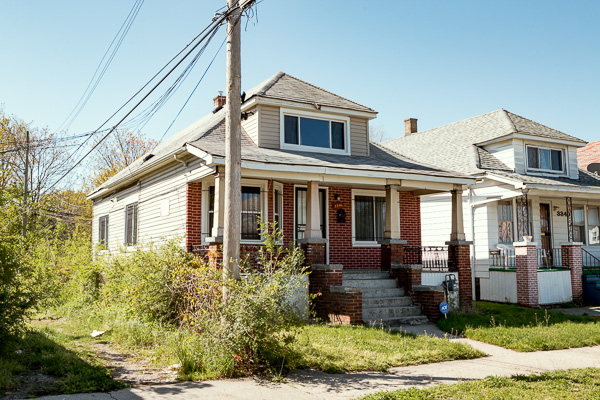
Aghajanian, too, has made plentiful connections in Detroit during her WAH experience. Within two weeks of moving into her house in Banglatown last year, she had met and spoken to more strangers than in any previous comparable time period in her life.
“The most surprising thing, I suppose, is how amazing the people here are—truly some of the most genuine, down-to-Earth, kind-hearted people that I’ve ever met,” she says.
Aghajanian has been pleased to play a small role in a positive trend she’s noticed in national media coverage of Detroit. Just since this November’s election, she says, the publications she writes for have been increasingly inclined not only towards more stories about Detroit, but stories that present a more diverse range of perspectives on the area—like Aghajanian’s recent piece for Teen Vogue about Hamtramck.
“I think editors and journalists have realized that they haven’t been paying attention as well as they should have to America as a whole, complex place,” Aghajanian says.
A new model
With four winning writers in the books, Cox says WAH has reached the end of the program’s “pilot phase” and is modifying the way it operates. Going forward, WAH is exploring ways to maintain and subsidize rental housing for writers in Detroit, rather than just handing out homes. That’s largely due to an improving housing market in Detroit.
“I think we thought if we had endless amounts of money we could award 10 houses a year,” Cox says. “As the real estate market changes and as funding changes, we could certainly go back to giving away houses too. But I think at this point it’s important to create a sort of second dream.”
Although it’s previously been impossible for WAH to obtain loan funding to renovate houses it intends to give away, Cox says a rental model will open up loans as a funding stream.
“It’s what any other normal company in the private space would do, and it allows us to grow the way a normal development company would,” she says.
The change is prompted by challenges, but the WAH team feels optimistic about its implications. Cox notes that a rental model will allow WAH to bring even more writers into the city and to have an even longer-lasting effect on Detroit’s neighborhoods, carving out permanent homes for a rotating cast of writers in areas where housing prices might otherwise make residency a difficult proposition.
“I love being part of telling a different kind of story about Detroit, both locally and nationally, that this is a space and this is a city that supports writers,” Clark says. “Wonderful writers have always come to the city, but I think we’ve sometimes made it a difficult place to stay … and I love shifting that.”
All photos by Nick Hagen.
